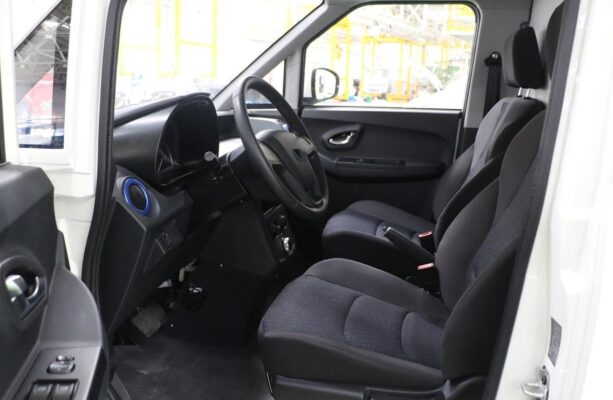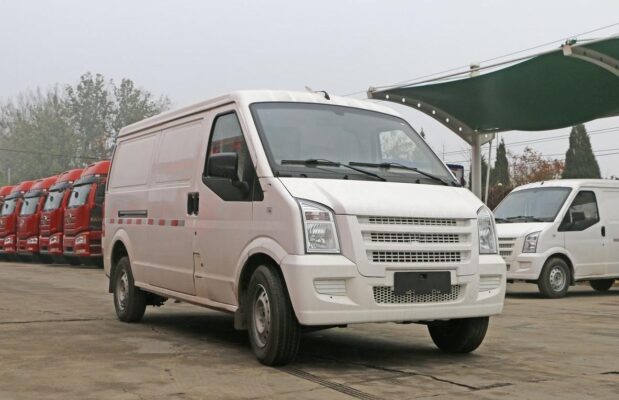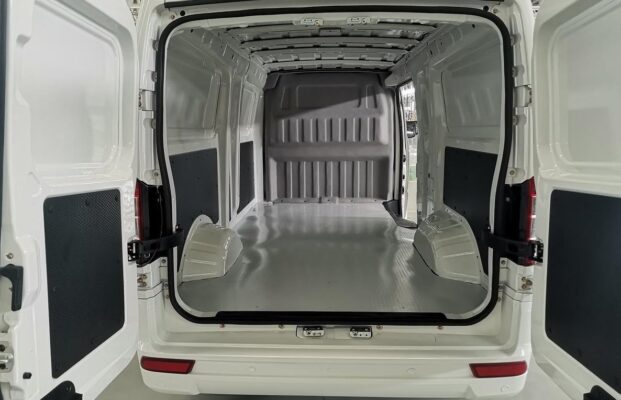Hluav Taws Xob Truck Paub
Control Process of Electric Vehicle Charging Simulator
Muab lo rau los ntawm Hluav Taws Xob Truck
The battery industry, being one of the three core technologies, has consistently been a key factor in the advancement of the new energy vehicle sector, dictating its developmental trajectory. The battery range, a matter of paramount concern for consumers, has steered the technological focus of battery development towards enhancing the energy density of batteries. Xyoo tsis ntev los no, with the utilization of novel materials, the energy density of batteries has witnessed a substantial increase, and the power of on-board charging apparatuses has surpassed the 10KW threshold. Concurrently, the safety testing of charging devices has emerged as the industry’s spotlight, and the control requisites surrounding the charging process have grown increasingly stringent. In May of this year, the national standards GBT34657.2-2017 “Test Specification for Interoperability of Electric Vehicle Conductive Charging – Part 2: Vehicles” for AC/DC charging control interoperability at the vehicle end was formally implemented. The GBT 34658-2017 “Communication Protocol Consistency Test Between Off-Board Conductive Chargers for Electric Vehicles and Battery Management Systems” for DC charging communication interaction also came into force.
In response to this market demand, ITECH has meticulously developed the Electric Vehicle Charging Pile Simulator (EV SE Simulator) tailored for vehicle-end interoperability and communication protocol consistency testing.

AC Charging Pile Charging Control Simulation
The AC charging pile simulator is not only capable of fulfilling the conventional authorized charging functionality but also proficient in simulating a plethora of faults, abnormalities, and edge conditions throughout the entire charging process by manipulating the RC/R4 values during diverse charging stages, CP amplitude/CP duty cycle/CP frequency, S1/S3 control, CC on/off/CP on/off/PE on/off, and more. This enables the testing of the vehicle-end interoperability and the fault handling mechanism. txuas ntxiv, by pairing with ITECH’s 7600 series AC power supply and leveraging the grid simulation feature of this product, it can simulate grid voltage, frequency fluctuations, and harmonic injection. Employing the waveform editing and waveform import functions, it can accommodate the simulation of more complex AC waveforms.
piv txwv li, when it comes to simulating faults, the simulator can artificially adjust parameters to replicate scenarios such as sudden voltage drops, frequency instability, or harmonic distortions in the grid. This helps to assess how the vehicle’s charging system responds and copes with these abnormal conditions, ensuring its stability and safety under adverse circumstances.
In the aspect of edge states, it can simulate situations where the charging signal is on the verge of instability or at critical thresholds, testing the adaptability and response speed of the vehicle’s charging control system.

DC Charging Control Simulation
The DC charging pile simulator can meticulously simulate various faults, abnormalities, edge states, and communication interactions throughout the entire DC fast charging process by regulating the switches S/PE/CC2/K1K2/K3K4, emulating R3 and insulation status, and CAN interaction control in each stage. This facilitates the achievement of the interoperability test and communication protocol consistency test for fast charging at the vehicle end. Through the parallelable high-voltage DC power supply modules, different output power ranges can be flexibly configured and combined.
This means that the simulator can accurately replicate scenarios such as short circuits, insulation failures, or communication disruptions during DC fast charging. It can also simulate edge cases like power fluctuations at the start and end of charging or rapid changes in charging current and voltage. These simulations provide a comprehensive test of the vehicle’s fast charging system’s performance and safety.

Interface of ITS9000 Charging Pile Simulation Test System
The simplistic interface design, coupled with an array of rich test items, caters to the testing requirements of diverse engineers. The comprehensive data recording functionality enables rapid fault localization and problem identification, thereby rendering the testing process simpler and more convenient.
The interface is designed with user-friendliness in mind, ensuring that engineers can easily navigate and operate the system. The test items are categorized and presented clearly, allowing for quick selection and configuration based on specific testing needs. The detailed data recording and analysis capabilities provide in-depth insights into the performance and behavior of the charging systems under test, facilitating effective troubleshooting and optimization.

Summary
Charging piles and on-board chargers, as vital supporting components for the growth of new energy vehicles, play an indispensable role in the widespread adoption of new energy electric vehicles. As a pioneering test solution provider within the new energy domain, ITECH proffers professional charging pile/on-board charger test solutions that comprehensively meet the testing requirements of various types of on-board chargers. By highly integrating a multitude of instruments and equipment to simplify operations and adopting a more receptive stance to fulfill diverse market demands in the future, we are committed to collaborating with engineers to contribute significantly to the development of China’s new energy vehicle market.
Our solutions are not only aimed at meeting the current testing needs but also designed to anticipate and adapt to the evolving technological landscape and market requirements. We believe that through continuous innovation and improvement, we can provide more advanced, efficient, and reliable test solutions to ensure the quality and performance of new energy vehicle charging systems, thereby promoting the healthy and rapid growth of the entire industry.
In the future, we expect to witness further advancements in charging technology, such as higher charging speeds, improved energy efficiency, and enhanced safety features. ITECH will remain at the forefront of these developments, continuously evolving our test solutions to keep pace with the industry’s progress and provide unwavering support for the sustainable growth of the new energy vehicle sector.